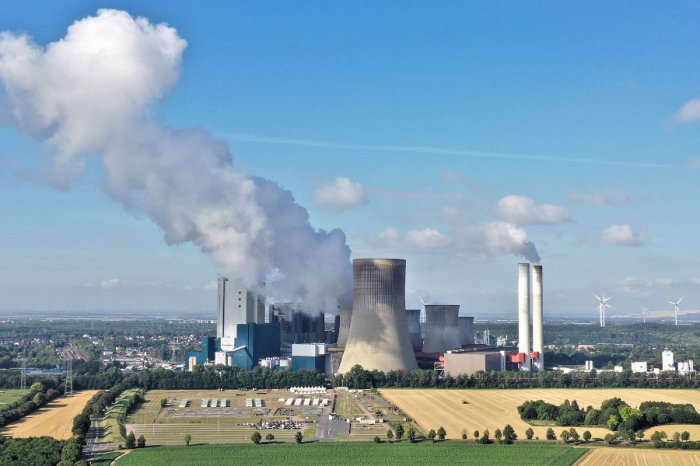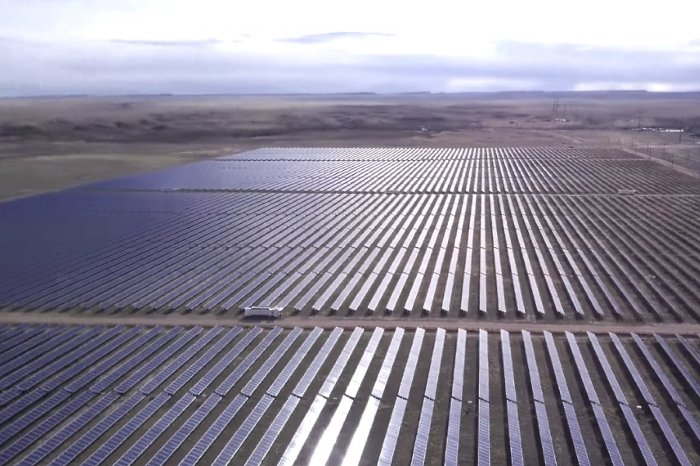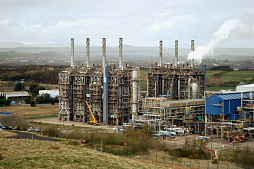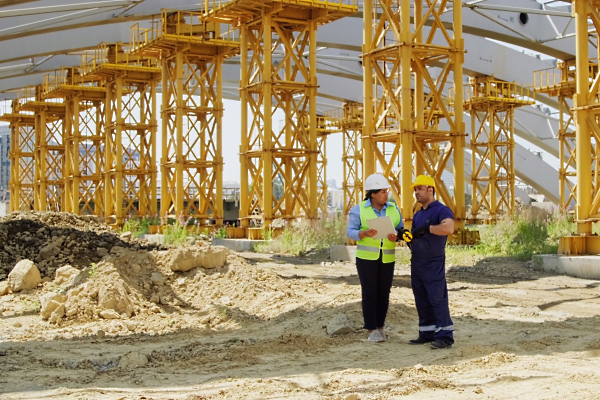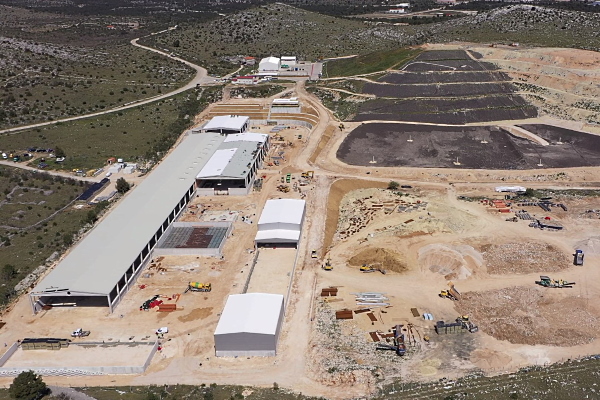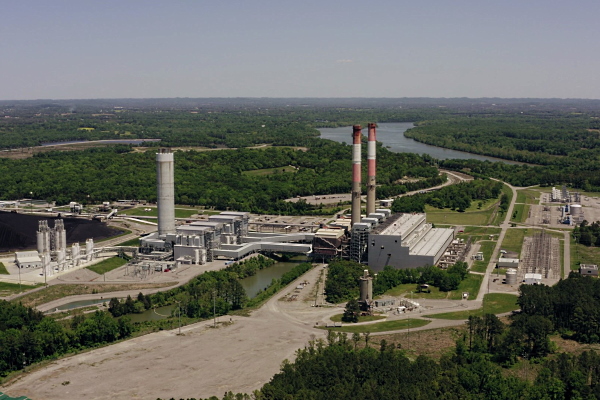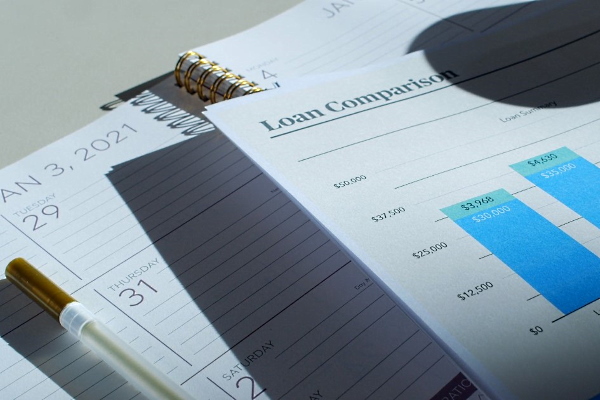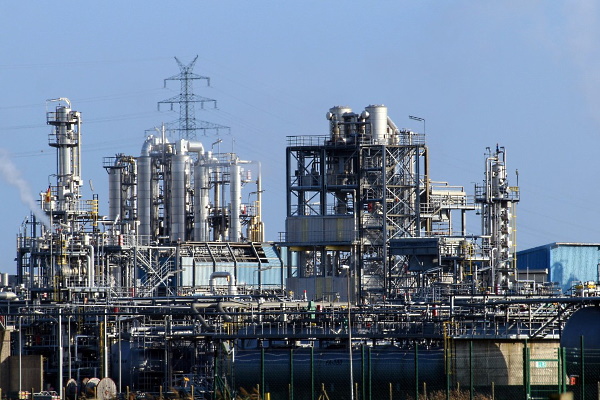To consider an application for financing, fill out the form and send it to us by e-mail along with the project brief, or contact our experts
It is especially popular in industries such as energy, oil and gas, manufacturing, transportation and telecommunications.
In many cases, the EPC contractor undertakes to hand over the object to the customer in such conditions of completion that the customer only has to “turn the key” to start the project.
For this reason, this format is called "turnkey" by some sources.
Due to their exceptional flexibility, EPC contracts provide a high degree of certainty for developers and investors, especially regarding project financing.
Proof of this is the positioning of the EPC as the preferred instrument for the development of the renewable energy sector.
The EPC contract can be used for the construction of industrial facilities in almost any industry, including the following facilities:
• Water treatment facilities.
• Hydroelectric power plant (HPP).
• Mining and processing plant.
• Mineral fertilizers plant.
• Liquefied natural gas (LNG) plant.
• Compressor stations for natural gas.
• Sea ports and terminals.
• Waste recycling plant.
• Plant for the production of bioethanol.
• Regasification terminal.
• Solar photovoltaic power plant.
• Thermal power plant (TPP).
• Electrical substations and other facilities.
The company LBFL offers services in the field of financing, construction and modernization of industrial, infrastructure and energy facilities on the terms of an EPC contract.
Together with our European partners, we implement investment projects in the EU, Asia, Africa, South America and other parts of the world.
EPC contractor and construction
EPC comes from the abbreviation "Engineering, Procurement and Construction".This contract includes detailed design, procurement management, construction, supervision, and commissioning.
As a rule, the EPC contractor is obliged to hand over the object to the customer at a fixed price, observing the specified deadlines and parameters of its performance. Failure to comply with these requirements leads to the application of financial sanctions.
The EPC contract compels the engineering company to complete the construction within the agreed timeframe and budget.
This type of contract covers offshore activities (design and engineering abroad, supplies of equipment and material from abroad) and services in the customer's country (construction and installation of equipment).
The EPC contractor acts at all stages of the engineering / construction project:
• Basic and detailed engineering design.
• Purchase of materials and equipment.
• Civil engineering management.
• Installation of electrical and mechanical equipment.
• Quality control and testing.
• Individual customization.
• Operation of equipment.
• Customer personnel training.
• Project management.
Working in this mode, the EPC contractor is responsible for all aspects of the project. In addition to being a contractor, an engineering firm is also involved in management and control.
The most important features of EPC contracting
EPC implies a relationship between a contractor and a customer based on the principles of trust, therefore the correct choice of an engineering firm is critical to the successful implementation of large-scale projects.In any case, the customer is minimally involved in the design, procurement and construction process, transferring responsibility for this activity to the contractor.
The contractor company, through the efforts of its multidisciplinary team, designs equipment and structures, holds tenders and purchases the necessary materials, delivers equipment and organizes work on the site.
One of the important features of EPC is that the work process can be carried out at the expense of the contractor's own resources or through subcontracting. Before signing, both parties agree on the construction price of an object with the specified parameters.
Here are the main features of EPC contracting:
• EPC meets the needs of the customer as much as possible.
• The amount of investment is known from the beginning, bringing certainty to the financing.
• The EPC contractor is responsible for maintaining the schedule.
• The contractor company has full control over the project, which facilitates proper coordination and better communication between the working groups.
• The customer can make less effort, time and resources to work on the project, because there is no need to coordinate the actions of all involved agents (subcontractors, suppliers, control bodies, service organizations).
• The EPC contractor maintains its own team of technicians to resolve any issues that arise.
• The customer communicates with a single contact person who answers any questions, provides advice and simplifies work control.
• A professional EPC contractor team ensures high quality work, reduces the risk of rejects and unexpected problems during and after work.
The date of commissioning of the facility is also set from the very beginning, so the customer can plan the development of his business. This is especially important when the customer has financial obligations to credit institutions related to the project.
The turnkey contract solution guarantees compensation for any delays in the delivery of the project, and also transfers responsibility for the final cost of the work to the contractor.
The legal nature of the EPC contract
In general, the legal nature of EPC contracts (according to FIDIC) is debatable.Some researchers believe that such contracts relate to the so-called soft law, other lawyers refer these proformas to lex constructionis.
This implies a system of non-governmental regulation of international construction contracts that reflects the customs and traditional terms of international construction contracts.
Based on lex constructionis, FIDIC develops recommendations in the form of standard contracts, regulations and standards that customers and contractors use when signing contracts for the implementation of capital construction projects. For many years FIDIC has been working on the development of standard contract forms in the civil engineering sector.
In 1957, FIDIC published the first contract titled "The Form of contract for works of Civil Engineering construction". As the name suggests, this first proforma was intended to settle civil engineering contracting relationships and was subsequently named "The Red Book" due to the color of its cover.
Subsequent proformas were traditionally named according to a similar principle ("Silver Book", "Yellow Book" and so on).
The first FIDIC proforma was developed jointly with the International Federation of Building and Public works.
Through FIDIC's efforts to provide advice and adopt new contract forms, they have been recognized by the International Federation of Contractors, the Western Pacific Contractors Association, Associated General Contractors of America and other reputable organizations.
Due to the broad support from international organizations and banks, FIDIC standard contracts are used during construction for the money of international financial institutions and organizations.
Published in 1999, the document titled "Silver Book" was focused on the implementation of turnkey projects. This document imposes on the contractor most of the risks not only for the comprehensive construction process, but also for the implementation of engineering design and commissioning.
This gave impetus to the active use and implementation of the EPC concept.
Responsibility of the parties under the EPC contract
EPC contracting identifies three main aspects of cooperation - time, cost and quality of the work performed by the contractor.The EPC contract regulates these aspects with more specificity than a regular construction contract, protecting the interests of the parties who finance the project.
Next, we will discuss the aspects that are highlighted when writing an EPC contract.

Distribution of responsibilities
A single general contractor is entrusted with all design, procurement, construction, tendering, procurement and inspection work.This does not mean that the contractor must fulfill all his obligations himself.
He gets the opportunity to delegate tasks to his subcontractors.
But, rather, it will be the same contractor who must go for repairs and compensate for damage, delays in work or defects, regardless of nature.
In particular, efforts are being made to transfer to EPC contractors the risk of fines arising from delays in reaching various stages of construction and development of the project, as well as the risks associated with poor performance.
Fixed contract price
Under the EPC contract, it is convenient to transfer the cost overrun risk to the contractor.Therefore, it is the contractor who usually bears the risk of unforeseen increases in project costs in excess of the investments planned in the contract.
The EPC contractor benefits from the economic efficiency of the project and therefore always strives to build the facility at a lower cost than specified in the contract. Increases in the cost of a project are permitted by the customer only in exceptional cases, such as delays or changes caused or requested by the same customer.
Specific date of putting the object into operation
It can be a fixed date or a certain period from the start of work. In case of violation of the deadlines, the contractor pays a predetermined compensation (delay with losses).Compensation is usually set in the form of a penalty fee for each day of delay, taking into account the additional costs for insurance, construction supervision, finance costs, and loss of profits.
Minimum performance guarantee
The customer's income and repayment of loans will fully depend on the performance of the facility (for example, power generation).Therefore, it is important to bring the project to the required parameters of operation, efficiency and reliability.
The EPC contractor guarantees the transfer of the finished object to the customer with the minimum performance level specified in the contract. In this sense, the amount of compensation is usually set in favor of the customer in the event that the project does not reach the specified level.
It is important for the customer to calculate the potential losses due to violation of the EPC contract, especially if he has a “put or pay” obligation.
However, there may be situations in which the level of performance depends on the availability of the resource. For example, the construction of wind farms and solar PV power plants. The EPC contractor guarantees the customer a certain performance of the generators, but the engineering company cannot guarantee that the sun will shine or that the wind will blow strong enough.
Limits of liability
Ideally, there should be no limitation of liability. In practice, EPC contractors do not accept unlimited liability for damage to the customer. Typically, they require that the limit be set as a percentage of the contract price. It is quite common to set a limit equivalent to 100% of the contract price for extreme situations.In standard contracts, the exclusion of the possibility of claiming compensation for indirect damage caused by a breach of the contract is widespread.
Unsurprisingly, the parties provide for exceptions to the limitations of liability.
While these exceptions are usually tailored to the specific characteristics of each project, there are others that are more common, such as cases of willful or serious misconduct by the contractor and cases where the minimum standards agreed in the contract are not met.
Guarantees of compliance with the assumed obligations
Contractor requests liquid guarantees to ensure that the client's obligations are met.These usually consist of bank guarantees or withholding of funds as a percentage of the total asset value, advance payment guarantees, or guarantees provided by the contractor's controlling company.
Changes to the EPC contract
A standard EPC contract allows the customer to ask the engineering company for changes for certain aspects of the project, and to approve or reject the changes requested by the contractor.It is important that this clause of the contract contains an adequate mechanism for calculating the price change in relation to the ordered or authorized project change. Any ambiguity about this last point should be removed and ideally offered the final say to the client by establishing an adequate and agreed dispute resolution mechanism.
In addition, this clause of the EPC contract may provide for an increase or decrease in both financial guarantees and the established amounts of compensation.
Liability for defects
An EPC contractor will usually take responsibility for correcting defects within two years of the commercial launch of the project. During this time, he must eliminate any defect affecting the functioning of the object.In some cases, this type of liability may vary depending on serial equipment defects, while in other cases, a longer term of liability is set for critical elements of the project.
Force majeure circumstances
It is advisable to clearly establish which events will be considered force majeure and which will not. It is especially recommended that the force majeure clause reflects, at a minimum, events considered to be force majeure under the main contract for the supply of products (eg electricity supply).This facilitates administration and risk assessment.
Termination of the EPC contract
The possibility of termination of the EPC contract is usually provided for in the event of force majeure over a certain period.The customer usually reserves the right to suspend the contract in certain cases as agreed with the contractor.
Typically, termination clauses severely limit the contractor's rights to terminate the contract. His right in this regard is usually limited to cases of repeated or prolonged non-payment or suspension of work for a certain period, either due to the inaction of the customer or due to force majeure.
The customer usually has broader rights to terminate the contract:
• The right to immediately terminate the contract in the event of serious violations, as well as in the event of bankruptcy of the contractor company.
• The right to terminate the contract after giving the EPC contractor sufficient time to correct previously identified violations.
Issues of termination of the EPC contract are of particular interest to credit institutions and banks that finance the project.
These issues are usually resolved through a direct agreement between the investor, contractor and customer.
Performance issue
Unlike traditional construction contracts, an EPC contract contains specifications for the required performance level.While the contractor retains some control over how this level of performance is achieved, this is a matter of distribution of responsibility.
In this sense, the contract must be specific enough to provide the customer with a certain level of confidence in the work he is doing. Also, this paragraph should be open in order to prevent the EPC contractor from evading responsibility in case of violations.
Differences between EPCM and EPC contracts
The choice of options for concluding an agreement is an integral part of any major investment project, since contracts define the rights and obligations of various working groups.Determining the correct contract form affects costs and can have a profound impact on project performance.
There are two ways to implement large projects - engineering, procurement and construction (EPC) contracts and engineering, procurement and construction and management (EPCM) contracts.
Which one gives the best results and what is the difference?
Executives involved in large-scale projects believe that EPC and EPCM both deliver good results. However, the customer needs to analyze the available mechanisms in order to determine the best option for cooperation for each specific project.
EPC contract (engineering, procurement and construction)
In the case of EPC, the company develops a project, purchases equipment and materials, and carries out all the work on a turnkey basis. In this case, the customer pays fixed price for the entire project.With this type of cooperation, the contractor must perform a full cycle of operations, from engineering design to transfer of the facility to the end user.

Advantages and disadvantages of EPC contracting
The main advantage lies in the fixed cost, more precisely in the absence of unforeseen expenses in excess of the previously agreed amount. In other words, the customer always understands how much he should invest.| EPC advantages | Disadvantages of EPC |
| The client devotes his time, efforts and resources to other areas of business, leaving the development of the project to the EPC contractor. | All responsibility lies with the contractor. Failure to communicate properly can lead to disagreements, conflicts and serious errors. |
| The investment amount is known from the outset, which minimizes the risk of increased costs. | The contract price is usually slightly higher compared to a conventional construction contract. |
| Time is spent efficiently as deadlines are set from the start of the project. | |
| The contractor company has full control over the project, which facilitates more efficient coordination of efforts. |
A typical EPCM contract involves detailed design of the facility and the purchase of the necessary equipment and materials.
In other words, the EPCM contractor is not responsible for the entire project, being limited to design, procurement management and coordination of relations between the customer and third parties (suppliers and construction companies).
Advantages and disadvantages of EPCM contracting
EPCM contract suggests that the client has a proffesional project management team.| EPCM advantages | Disadvantages of EPCM |
| The contractor is engaged in the design and preparation of all the necessary technical documentation. | The client does not have the knowledge or criteria for choosing the right equipment, so he pays more attention to the cost factor. |
| Responsibility and risks associated with any unforeseen circumstances lie with the customer. | Communication and coordination between multiple teams becomes more difficult due to their independence. |
| The customer gains more control over costs, and the contract price is usually lower compared to an EPC contract | There is a risk of choosing the wrong equipment due to the low qualification of small contractors. |
| The client retains a sense of control over the project and its possible changes | |
| High flexibility and choice of opportunities when searching and selecting third parties |
What is the difference between EPC and EPCM contracts
From a practical point of view, there are several differences between EPC and EPCM contracting that should be taken into account when implementing an investment project.Difference # 1:
• EPC: Typically a large payment from a client to a contractor requiring funding at the start.
• EPCM: Payment and financing of the project is done by a combination of advances and letters of credit from the customer to various suppliers.
Difference # 2:
• EPC: All responsibility for the implementation of the project rests with a single contractor. He is responsible for the risks included in the contract documents, such as facility performance, cost, quality and other specific process requirements.
• EPCM: risk is transferred to each contractor through legal and financial mechanisms. It can happen that finding the responsible parties becomes confusing.
Difference # 3:
• EPC: With a single contractor, a set of uniform performance assessment tools, coordination and reporting tools for materials, costs, labor, and more can be applied.
• EPCM: Performance assessment tools vary and are often problematic when compiling a full report for project investors.
Difference # 4:
• EPC: Work plans sent to a single contractor are easy to track and control. This allows you to plan the work on the project in the most efficient manner.
• EPCM: work plans should be divided into groups depending on the scope of work and the capabilities of each contractor, but this does not always reflect the optimal process and sometimes leads to inconsistency.
Difference # 5:
• EPC: Information and work experience is quickly shared with team members. Problems are quickly resolved and results are provided through a single interface.
• EPCM: numerous connections between the customer and small contractors lead to very slow reactions to possible events.
Features of EPC contracting in the energy sector
The contracting stage is very important in large oil and gas and energy projects. In this sense, a common type of contractual relationship is the turnkey contract (LSTK), which can be concluded on EPC terms.EPC contracting in the energy sector has specific features that the project manager and investor should be aware of.
In general, the construction of power plants on these terms is very common and is considered beneficial for the customer.
Features of EPC contracting in the energy sector include:
• Sole responsibility. In these types of engineering contracts, there are only two agents: the client and the contractor. Whether or not a contractor can subcontract (e.g. buy materials from a third party). In any case, the contractor is always responsible to the client.
• Fixed contract price. EPC contracts set an exact price. If there are no significant changes in the project at the request of the customer, then the amount of investment remains constant and predictable. In the energy sector, customers are usually bound by existing contracts for the supply of electricity, so the scope of projects does not change.
• Fixed date when the object was launched. Since energy projects can provide energy to consumers under other contracts, it is very important to know the exact date of the facility launch and reaching the planned capacity. EPC contracting involves heavy fines for violation of deadlines.
• High costs. A project manager working in the energy sector should be aware that the cost of EPC contracts is usually high as the procurement list is very wide and expensive. On the other hand, the average margin in this type of projects is 5% and does not exceed 10%.
• Guaranteed performance. Another characteristic feature of EPC contracting is the guarantee of achieving a certain capacity of the power plant, which is important for fulfilling the customer's obligations under other contracts with electricity consumers.
EPC-contract is a rather difficult form of relationship to manage.
There are many specialists involved in the field of engineering design, marketing, law, safety, quality, ecology, etc.
The implementation of large energy projects requires the involvement of experienced EPC contractors with a wide range of competencies in various fields, which have significant financial and technical capabilities.
Engineering services worldwide
While the EPC contract has numerous advantages, it is not without its disadvantages.Among these, the most prominent are the higher costs associated with this type of contracting, mainly associated with the transfer of a significant portion of the construction risk to a single contractor.
The transfer of risk to the contractor is reflected in the price that the client must pay. In traditional construction contracts, the risk is assumed by the customers, which allows for a lower project cost to be negotiated.
Before choosing between an EPC contract or a traditional construction contract, the investor must assess the transfer of certain risks vs setting a higher investment amount.
On the other hand, the EPC contractor is responsible for all stages of the project, so the customer does not need additional employees and departments.
Understanding the exact cost of the project, a clear schedule for the construction, the presence of a single contact person make the EPC format the most convenient for most companies investing in industry, energy and infrastructure.
The company SWIG is ready to offer you financing and professional assistance at any stage of your project.
Contact us.





